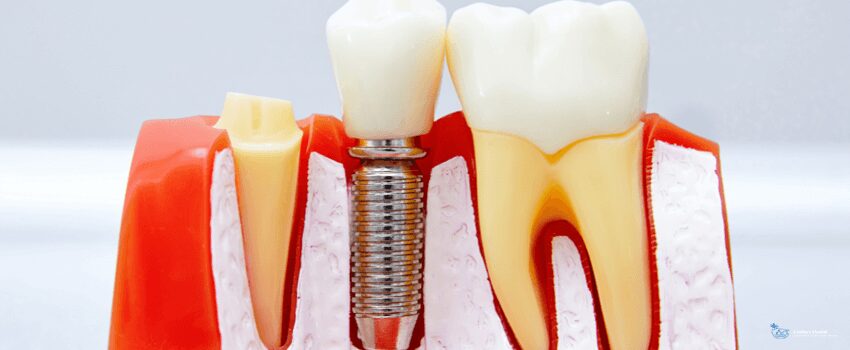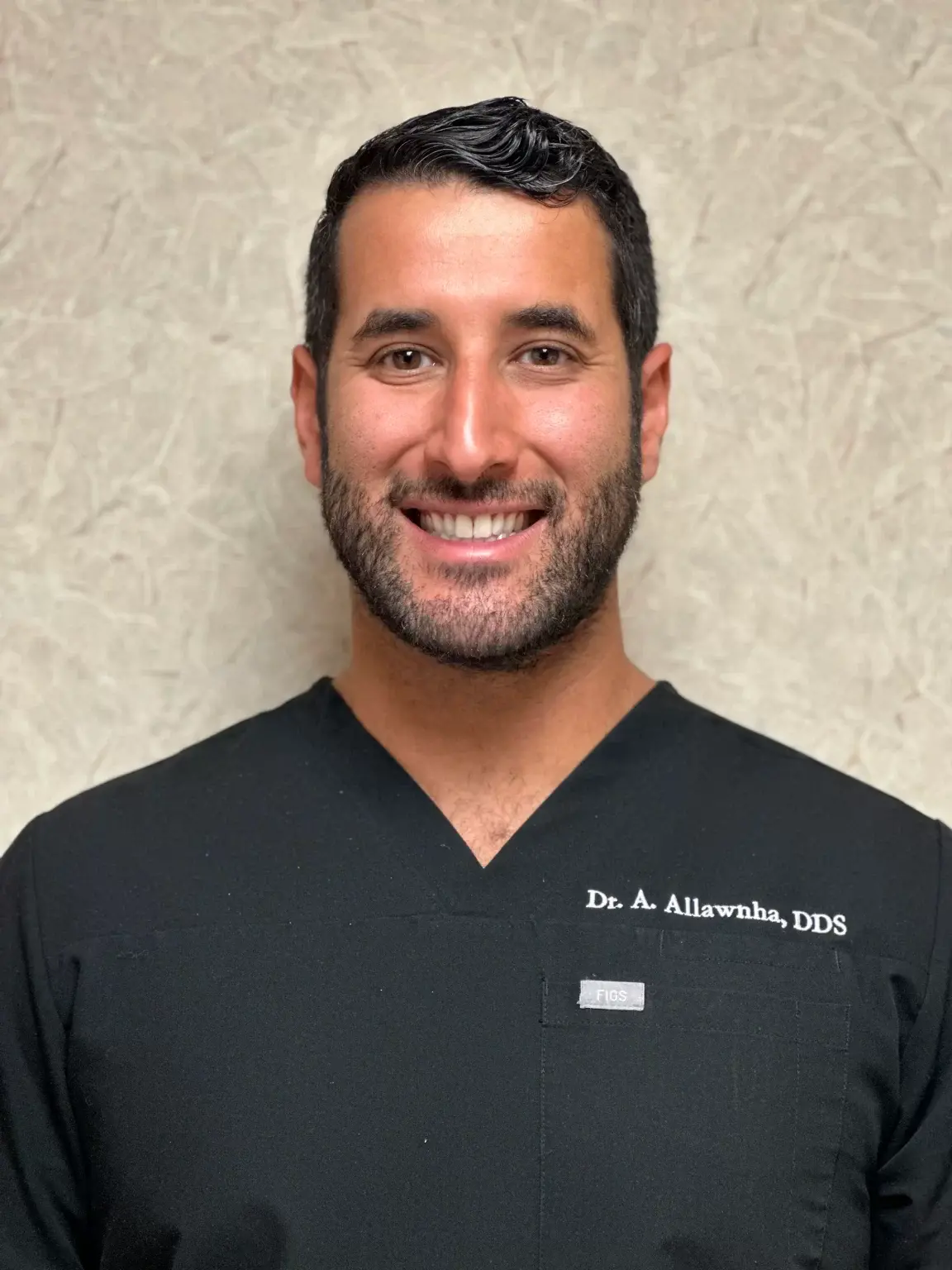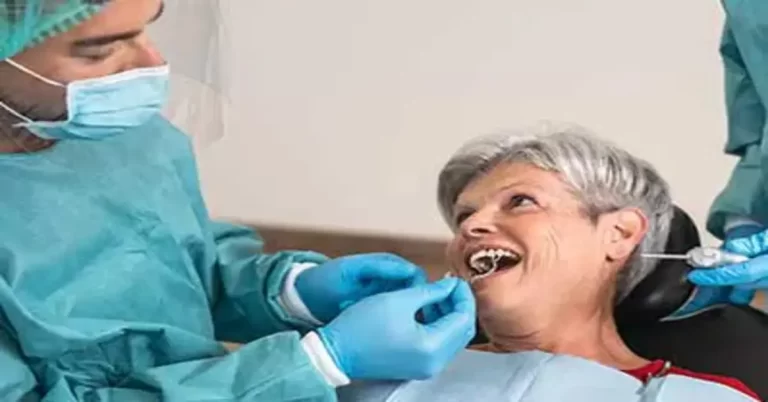While the number of tooth loss in adults has decreased from the 1970s to today, millions of Americans still lose their teeth. According to the Centers for Disease Control and Prevention, a quarter of adults 65 and older have eight or fewer teeth; 1 in 6 has lost all their teeth. You shouldn’t take missing teeth for granted; they affect your jawbone health and may prevent you from eating nutritious foods like fruits, meats, and vegetables.
Dentures and bridges were once the only alternatives people had before dental implants. People who have lost a tooth due to tooth decay, periodontal disease, or trauma have better options like dental implants.
What Are Dental Implants
Dental implants are screw-like devices inserted into the jawbone to replace missing teeth. They are composed of three parts:
- The implant that replaces the tooth root
- The crown that replaces your tooth, and
- the abutment that supports the crown
Implants are often made of titanium, and the crown is customized to fit the individual’s mouth and match their natural teeth color. They look, feel, and function like natural teeth, and unlike other options like dentures and bridges that may slip, make noise, or cause bone damage.
Dental Implants: Benefits
Here are some advantages of dental implants:
- Enhanced chewing function
- Higher success rate
- Improved oral health
- More comfortable
- More natural-looking
- Reduced risk of cavity development in nearby teeth
- Greater preservation of bone at the location of the missing tooth
- Easier to maintain and clean
- Increased self-esteem
Before getting a dental implant, your dentist will determine if your mouth is healthy enough for them. You will need strong bones since the implants must fuse with your jawbone. Implant placement is a safe procedure only performed by licensed dentists and surgeons.
Dental Implants: Contraindications
Some health conditions may make dental implants unsuitable for you. These conditions include:
- An infection or disease of your soft tissues or bones
- Acute illness
- Uncontrolled metabolic diseases
A patient must address these conditions first before a dentist can consider them a candidate for implant surgery. In some cases, a surgeon might not perform surgery if the patient has the following:
- Behavior and psychiatric disorders
- Diabetes
- Persistent smoking habits
- Parafunctional habits (teeth grinding, clenching)
- HIV-AIDS
- Osteoporosis
Patients with any of these conditions are more likely to experience implant surgery failure. Patients who have undergone bisphosphonate drug therapy, chemotherapy, or radiation therapy to their neck and head are also more likely to experience implant complications.
Implant Surgery: What To Expect
Your dentist will recommend the best way to place your dental implants. Usually, implant placement procedures take multiple appointments set several months apart. However, they have cases where they can place the implant and the crown on the same day.
Implant Placement
In the first stages of the procedure, you will either be given local anesthesia to numb your mouth or IV sedation. It will ensure that you don’t feel any discomfort or pain.
Your dentist will cut your gums to place the implant in the jawbone. Once in place, they will close the gums over your implant.
Take someone with you on the day of the procedure. Let them drive you home after the surgery.
Healing and Abutment Placement
You will complete the first stage of the procedure at home and return for the second stage of the procedure in a few months. It gives the bone around the implant enough time to grow and strengthen the implant.
Every patient heals differently. It may take up to six weeks before your dentist places the replacement teeth. Sometimes, they can place everything in one visit. They will inspect your gums to ensure that the implant is secure. Once done, they will place the abutment over your implant’s post.
Crown Placement
Once your gums have healed, your dentist will take impressions of your teeth. They will create a custom-made replacement tooth or a crown that attaches to the abutment.
Dental Implants: Aftercare
Knowing how to care for dental implants is important to maintain their integrity and function. Dentists will discuss their care before and after the procedure. However, you may need to modify your current eating and oral care habits. You may also feel discomfort, pain, swelling, and tenderness after the surgery. These sensations are normal and are not cause for panic.
If you are getting a dental implant soon, here are some things you can do to reduce these symptoms after the procedure:
- Apply gauze, cotton balls, or sponges over the area to control bleeding.
- Keep your head up and avoid strenuous activity for the first twelve hours after the surgery.
- Use an ice pack to reduce swelling. Use it every 15 minutes or as often as necessary.
- Take pain medications that your dentist prescribes.
- Avoid chewing by consuming soft foods and drinks within the next 24 hours.
- Do not rinse your mouth in the next 24 hours.
Daily Tips for Dental Implant Care
Like all dental procedures, getting implants will require proper care to last long and work optimally. Here are some tips to help you care for your dental implants:
1. Use soft-bristled toothbrushes.
Switch to a soft-bristled toothbrush after you have implants placed. Avoid using a toothbrush with stiff bristles, which are too harsh and can scratch your implant’s surface. Ask your dentist for suggestions.
2. Avoid abrasive dental products.
You should also switch dental products after your dental implant surgery. Use toothpaste or mouthwash formulated for sensitive teeth. Avoid dental products with strong flavors and abrasive ingredients, as you might experience extreme discomfort using such products.
3. Avoid sticky and hard foods.
Some foods are difficult to chew and can cause unnecessary stress on your implants and other teeth. These include:
- Potato chips
- Caramel
- Dried fruits
- Popcorn
- Tacos
- Steak
- Apples
- Ice
4. Avoid smoking and alcohol.
Your implant would need to heal for approximately six months. Avoid drinking and smoking during this time; alcohol consumption and smoking will slow healing.
5. Visit your dentist regularly.
Regular visits to your dentist allow them to perform regular dental cleanings and check on your implants. These will help your implants stay in top condition and your teeth free from decay and cavities.
Key Takeaway
Dental implants are your best option for replacing your missing tooth. They function, look, and feel like natural teeth and are more advantageous than dentures. However, they require oral health to be in peak condition before having them.
You may experience pain and discomfort after their placement, but you can do some things to relieve it. It would help if you also cared for them as you would your natural teeth.
Century Dental is here for you.
Your oral health is our team’s primary concern. With Century Dental, you can rest assured that your dental implants will last a lifetime. Our dentist in South Pasadena, FL, can help you decide on the teeth replacement option that suits you the most. Contact us and show off your smile and increased confidence today.





